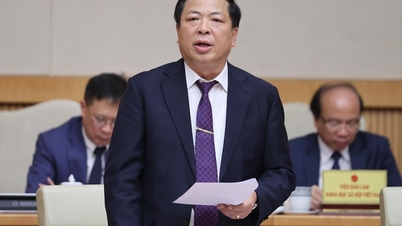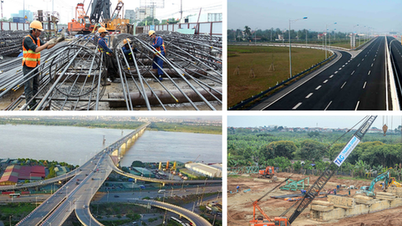
It is the legal departments in businesses – especially in large corporations – who have to "solve institutional problems" every day with sweat, pressure and creativity.
The spirit of institutional reform has spread widely, from the central to local levels, from ministries and branches to each grassroots administrative agency. The progress in digitizing procedures, building public service portals, one-stop mechanisms, and improving business environment rankings... are all clear evidence that Vietnam is on the right track.
However, the deeper we go, the more we realize a significant gap: the people who know best about institutional bottlenecks – are not really being listened to systematically and systematically. That is the legal team in businesses.
Silent frontline
Not any other agency, but the legal departments in enterprises – especially in large corporations – are the ones who have to “solve institutional problems” every day with sweat, pressure and creativity. They directly face the confusion, inadequacies and overlaps in legal regulations. They understand exactly which regulations are unreasonable, which conditions cause congestion, which procedures cause compliance costs to increase many times over.
For example, a large industrial park project in the South, the Enterprise has been allocated land, detailed planning is available, but cannot implement factory construction because... the fire prevention and fighting system has not been approved.
Another renewable energy corporation in the Central Highlands could not complete its investment dossier because... there were no regulations on how to determine the rental price of production forest land for the transmission system. The Ministry of Natural Resources and Environment had not issued any guidance, so the Department of Finance did not dare to set the price, and the Department of Planning could not approve it. The project was stuck, thousands of solar panels were left exposed to the sun and wind. And it was also the legal department of the enterprise that had to continuously work with each competent agency, draft recommendations, and propose intermediate solutions so as not to violate the law but still be able to continue implementing the project.
Even large foreign technology companies that have invested hundreds of millions of dollars in factories in Vietnam still have to hire a separate team of in-house lawyers to monitor, explain, and "navigate" dozens of small licenses during the construction and operation process - because Vietnam's regulations often change, and instructions vary between different localities.
All these stories show that: every legal barrier is not in theory, but in living documents, where the legal department heads are the ones who understand the whole picture best – both from the business side and from the State side.
Unfortunately, while we have organized many document review sessions, those who have the deepest understanding of the issues have not been mobilized as a strategic data source. Instead, opinions still mainly come through industry associations or VCCI – which often reflect at an overview level, not really in-depth legal and technical.

Every legal barrier is not theoretical, but lies in living documents, where the legal department heads are the ones who understand the whole picture best – both from the business side and from the State side.
It's time to change approach
To truly remove institutional bottlenecks, we cannot just sit in an air-conditioned room and review documents based on technical thinking. We cannot rely solely on emotions or pure legal theory. We need an organization that is strong enough, has real power, and is capable of approaching reality deeply.
It is necessary to establish a Government-level inter-sectoral working group on removing institutional bottlenecks, directly directed by a Deputy Prime Minister, with the participation of the Government Office , Ministry of Justice, Ministry of Finance, and representatives of experts and the business community.
This working group not only reviews documents, but also has to work directly, "dissect" the stuck files in a practical way, separate each specific institutional barrier, listen to recommendations and handle them effectively.
This task force should be supported by a dedicated feedback portal on the Government Portal, where legal departments can submit detailed reports, legal analysis, compliance costs and proposed amendments, and a Vietnam Business Legal Forum, which brings together the professional voices of those who are truly on the front lines – so that the State can listen, understand and act in the right place, at the right time, ensuring effectiveness.
New Generation Institutional Reform: Co-creation Instead of Unilateral Action
Cutting red tape is a start. But unblocking institutional bottlenecks is a deeper level, requiring co-creation of policies between the State and those affected. It is a spirit of humble, open, and pragmatic reform – knowing how to listen to voices that truly matter, and daring to give them a role as partners in creating transparent and effective rules of the game.
Without a change in approach, the document review will pass like many other administrative campaigns – with a few hundred procedures eliminated, but major bottlenecks likely to remain. And the economy will continue to pay the price for delays, outdated regulations and unnecessary compliance costs.
Think of your corporate legal team not just as a law-abiding citizen, but as a strategic partner in institutional reform. They are the practitioners, the silent architects, who know the institutional problems well – and if we listen to them properly, we can find a clearer path for the whole economy.
Dr. Nguyen Si Dung
Source: https://baochinhphu.vn/go-diem-nghen-the-che-can-phat-huy-doi-ngu-phap-che-doanh-nghiep-102250531163332351.htm






















































































Comment (0)